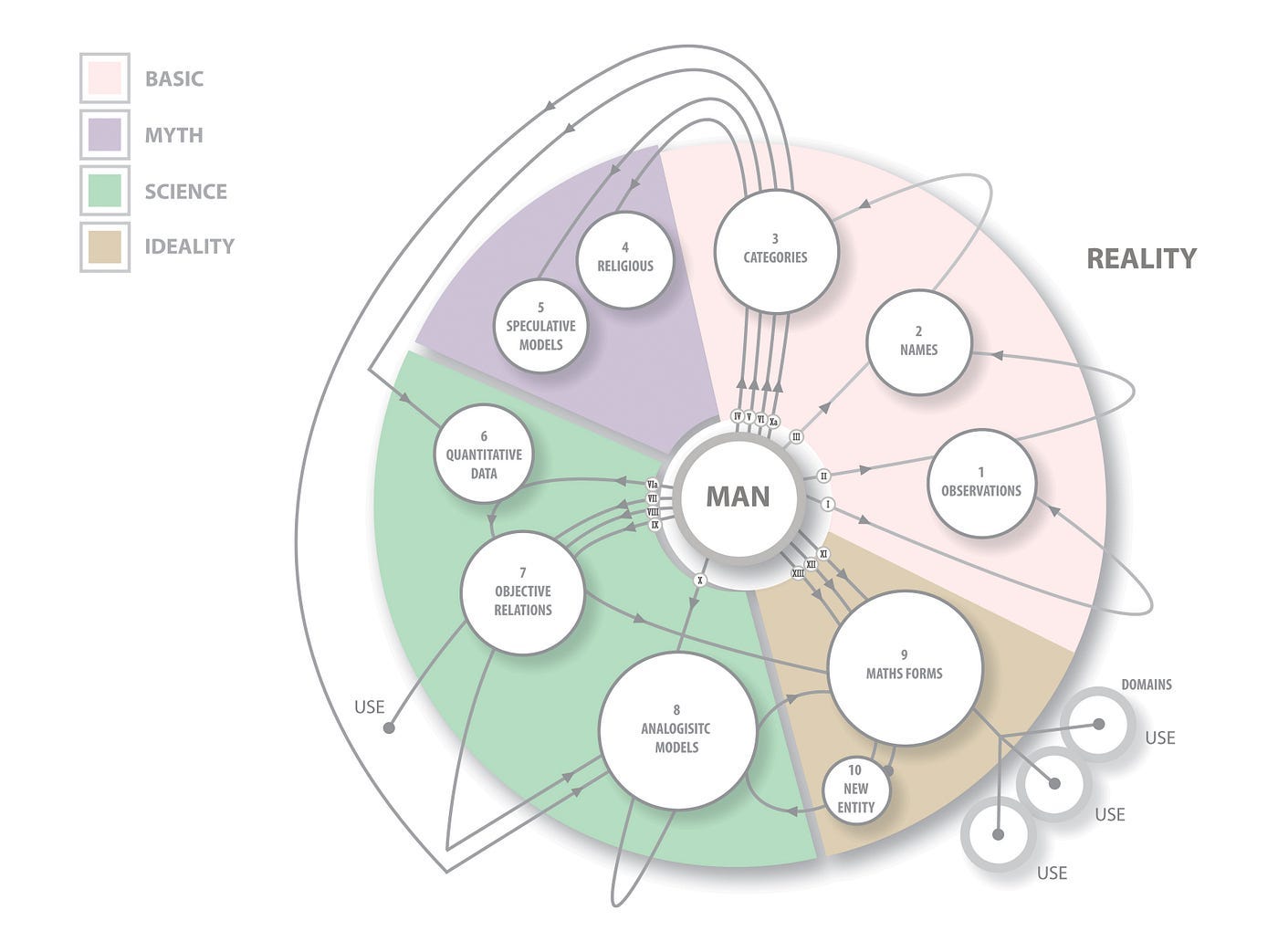No Consent, No Planet: the Curious Ethics of 'The Stack'
To confront planetary crisis meaningfully, we must insist on refusal, accountability, and explicit, structural consent.
Every celebrated "solution" to crises—climate, health, infrastructure—conceals engineered trade-offs. Electric batteries depend on child labor in cobalt mines. "Resilient" telecom systems routinely abandon hospitals mid-surgery during sieges. Catastrophe bonds enrich investors while victims remain buried under rubble. These aren't system errors; they're intentional optimizations.
Benjamin Bratton’s “planetary stack”—Earth, cloud, city, interface—articulates this integrated, extractive logic clearly.
Yet Bratton conflates historical contingency with ontological inevitability. His elegant diagrams represent colonial extraction and racialized violence as passive, neutral infrastructures.
Jason W. Moore counters this, arguing that capitalist modernity inherently organizes humanity and nature into cheap, disposable resources, fueling endless cycles of exploitation.
To survive without consent is not resilience—it’s conquest. Without memory, it’s amnesia.
Bratton’s clean lines normalize harm as systemic logic, erasing ethical stakes. His abstraction dissolves questions of who pays, who benefits, and who remains entrapped within designed dispossession. Thus, optimization becomes moral erasure.
What in a previous essay I described as “Forensic ethics” begins precisely where Bratton’s cartography ends. Rejecting abstraction, it reconstructs contracts, clauses, and algorithmic thresholds, demanding explicit accountability and genuine opportunities for communities to refuse.
The Cost of Bratton’s Abstraction
Bratton rightly captures planetary scale, yet his abstraction obscures the brutal realities of dispossession, coercion, and racial capitalism. His diagrams mask violent histories and current practices on which the planetary stack is built.
He catalogues cloud sovereignty without naming whose sovereignty was erased. He visualizes megastructures but omits shell companies, privatized relief algorithms, and automated gatekeepers that monetize suffering.
Following Moore, we see clearly: capitalist systems are not neutral. They actively reinforce a hierarchy of disposability and extraction.
Bratton’s transition from critique to design magnifies these erasures, prioritizing infrastructural coherence over reparative justice. Any meaningful reform of the planetary stack must first expose and confront these hidden architects.
From Cartography to Accountability
Critique identifies injustice; forensic ethics activates accountability by tracing explicit responsibility:
Who set the threshold that allowed Chiapas relief but denied Puebla despite greater devastation?
Which proxies—zip codes, “risk scores,” or wind speeds—replace genuine human need?
Who profits from systemic refusals and structured exclusions?
Forensic ethics treats infrastructure as active evidence. It binds every harm explicitly to choices made, enabling direct legal and technical interventions.
The Public Damage Ledger
Real accountability demands thorough documentation. Each layer of the stack—Earth, Cloud, City—could be charged with maintaining a public damage ledger, explicitly recording extraction, environmental impacts, and human costs.
Moore emphasizes that environmental exploitation and human dispossession are structurally inseparable, driven relentlessly by capital accumulation.
Cobalt mining would record not merely tons extracted but also land appropriation, pollution, and community dispossession. Cloud services would track not just ‘compute hours,’ but associated emissions, water depletion, and e-waste. Urban optimization algorithms would document human costs—exclusions, wrongful arrests, reparations owed.
This ledger would provide more than historical record; it would guide actionable justice, calculate repair, and assign veto rights.
Refusal as Core Design Principle
Real refusal starts not with utopian redesign, but immediate interruption: naming responsible parties, documenting abuses, and reclaiming memory from automated erasure. Moore underscores that capitalism thrives on amnesia—erasing past violence to facilitate continued extraction.
This approach isn't about refining models; it’s about enforcing accountability and immediate intervention. Without the power of veto, consent is meaningless. Without genuine consent, no sustainable future exists.
Consider the Lummi Nation, who halted a coal terminal project by invoking treaty rights—a powerful example of community-led refusal. Extending such power into daily infrastructure means:
Mandating explicit, legally binding community consent before project initiation.
Smart contracts halting actions automatically when community-defined thresholds breach.
Empowered local councils able to immediately pause or stop damaging initiatives.
These aren’t distant dreams; they're actionable strategies based on existing precedents.
Bratton provides a compelling map, but maps alone cannot absolve us—they merely precede accountability. The stack’s coherence cannot justify moral blindness. To confront planetary crisis meaningfully, we must insist on refusal, accountability, and explicit, structural consent.
Further Reading
For deeper exploration of engineered exclusions and structured refusals, see:


